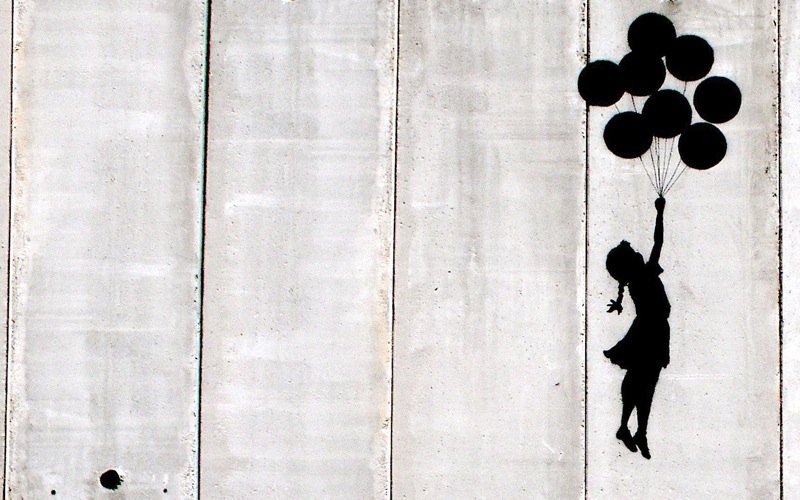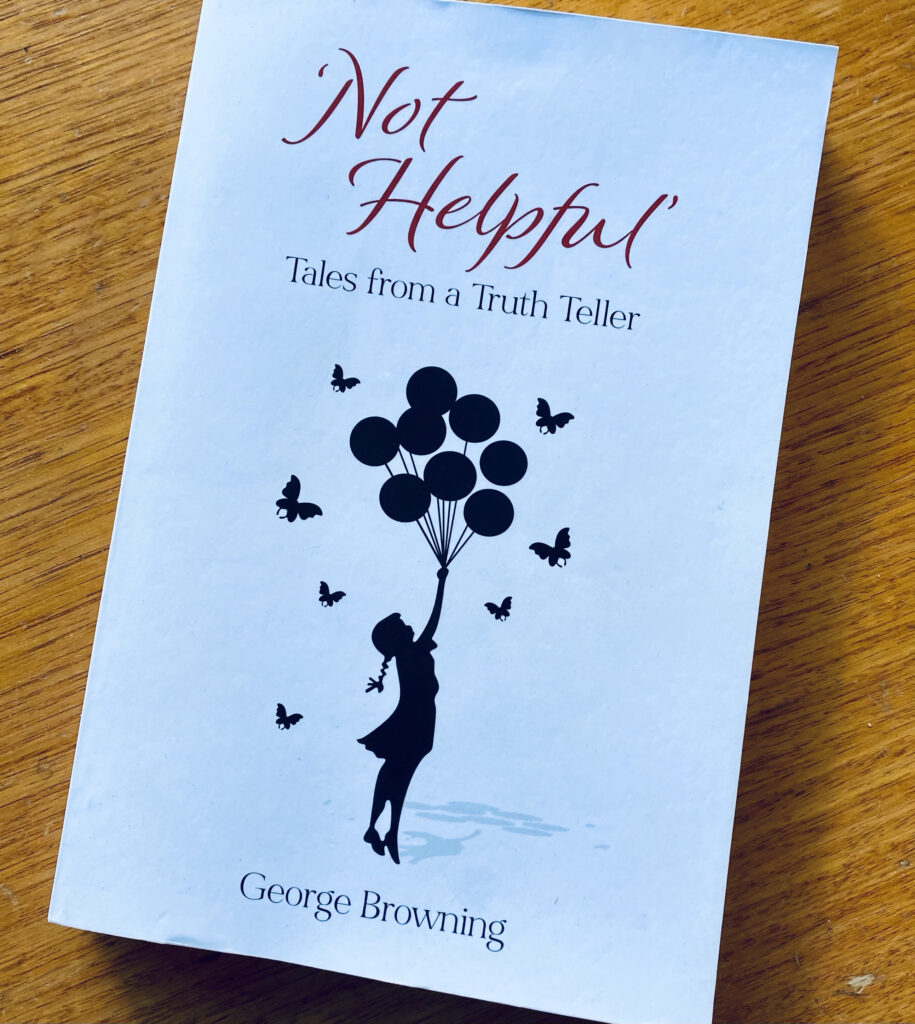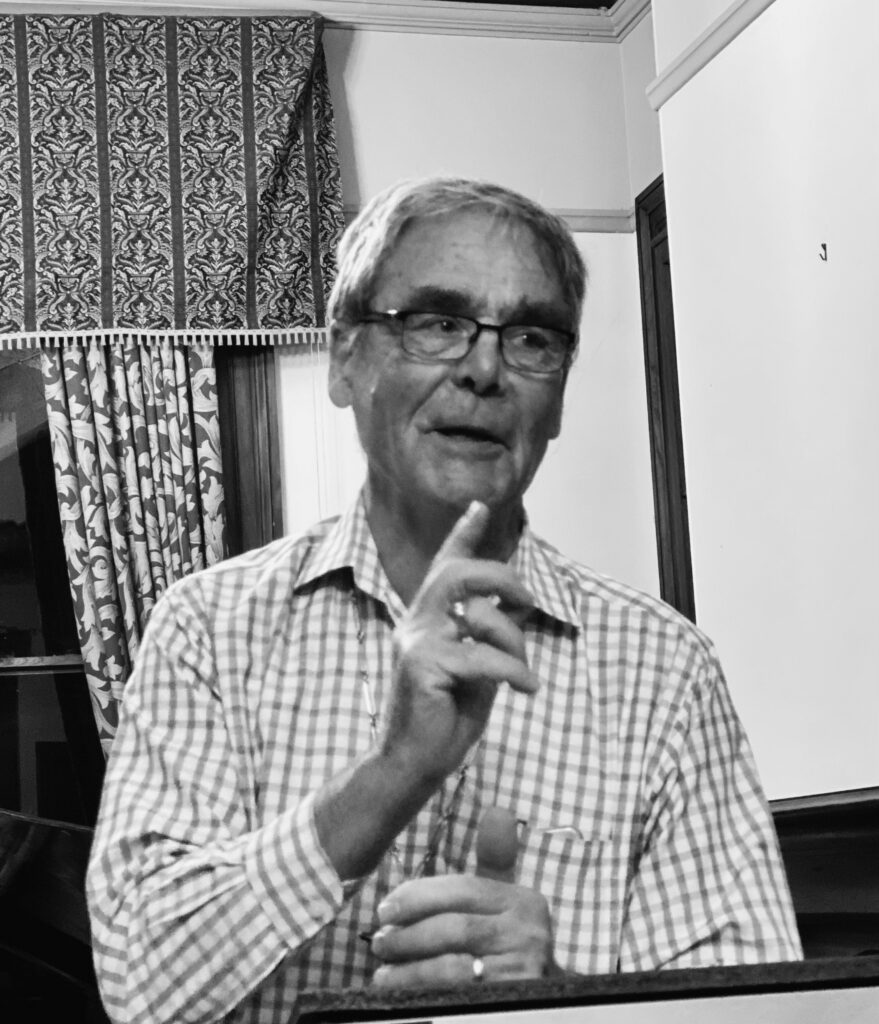George Browning’s book launch took place at Old Bishopsbourne, St Francis College on Thursday 15 April. I was one of the speakers at the launch, alongside Bishop Jeremy Grieves and Evereld Compton. The following is the text of my short address.

One of the many delightful things in this book is George’s evolution. A post war Britton travels from one side of the globe to another, and lands as a citizen of the Mother Land in a new land, shy, and unconsciously clothed in the sexism, racism and colonial pride of his time. Yet he evolves. Thankfully, otherwise we wouldn’t be here. Encounter:
Not a coloniser but a citizen
Not a quiet beneficiary of the status quo,
but an advocate for the liberation of the oppressed.
Not a patriarch, but a husband–
the preface that acknowledges Margaret is real and moving.

An example of that past life is your father – whom you call Father – writing
to the bishop opposing your prospective ordination, saying ‘there are enough hopeless clergy already without adding you their number’.
I have described this book to others as theology: lived in practice,
told in story. Which might explain why for me the most difficult chapter to
read is the one on Palestine. It is less “flowing story” and more “historical
account”. A necessary if horrifying account.
Beautiful hearts and minds, we are in the company of one described by some
as an anti-Semite. Out of fear and the encounter with complexity, many choose neutral ground, refusing to stand with one side or the other. Fingers point then at
those who stand with Palestinians as if they also stand against Israel.
As many wise minds point out, no choice is a choice to side with the dominant power.
Singing through these pages and straight from the life of Jesus is this message: wherever there is an imbalance of power, there is only one choice: stand, unapologetically, with the powerless.
So, may Israel flourish, and in standing with the powerless stand with Palestinians, and as much as possible, create the space for them to tell their story and flourish in their own agency.

George, you once summarised the Palestinian experience this way. (These are your words.)
Do not over complicate this experience nor defer a decision because you are told it is too political. When a farmer has a family sustained by an olive grove and the well is poisoned or cut off, it is not political. It’s really simple: restore the water.
There is a thread that runs from your first book to this. It is an aid to ethical decision making inviting a tuning in to the future, a sabbath mindset that I think is really helpful: choose life in the best interests of your children’s children.
One of those children of yours walked in front of the Four Corners report on gas and climate on Monday night. He watched for approximately 28.2 seconds and turned away, but just before he did he said: ‘why is everything so broken?’ This points to the real challenge of ‘helpful | not helpful’. Telling ‘the truth’ is no longer enough – pathways need to be opened for hope filled and effective action.
At the heart of the ‘broken’ comment was not so much the rapidly warming climate, disappearing wilderness, loss of biodiversity, the insane and criminal pillaging of the oceans and the obstinate and market defying use of fossil fuels. It is a comment on the infuriating inability of human systems to organise a solution beyond small and self interest.
So, is knowing helpful, and where might it lead?
If the population remains quiet then the powerful can do as they please, writes Noam Chomsky. He continues: And all the conscious can do is contemplate the outcome.
Read this book, and delight in the glow of a life well lived and a story well told. Read this book, and be led through contemplation towards this great work: how we can affect the outcome!
“The choices we make becomes the story of our lives[1]” and that story, whatever it is, tells the story of what we believe. Another way to say that is, don’t tell me what you believe, I’ll watch you closely and it will become apparent. This book is the story of one who believes in the cross, and gentleness, compassion, forgiveness are the way of the cross, and “gentleness, compassion, forgiveness are signs of true humanity, because they reflect the nature of the divine whose fingerprints can be found in every corner of the created order”[2].
This book describes the way of Jesus and the way of the cross are the same; that Jesus calls people to follow him, not worship him, and that following transforms people and the world.
Any open reader of the book, follower of Jesus or not, will find plenty of inspiration to take heart and choose life, and live in a way that serves children’s children, and the earth be blessed.
No Comments Yet